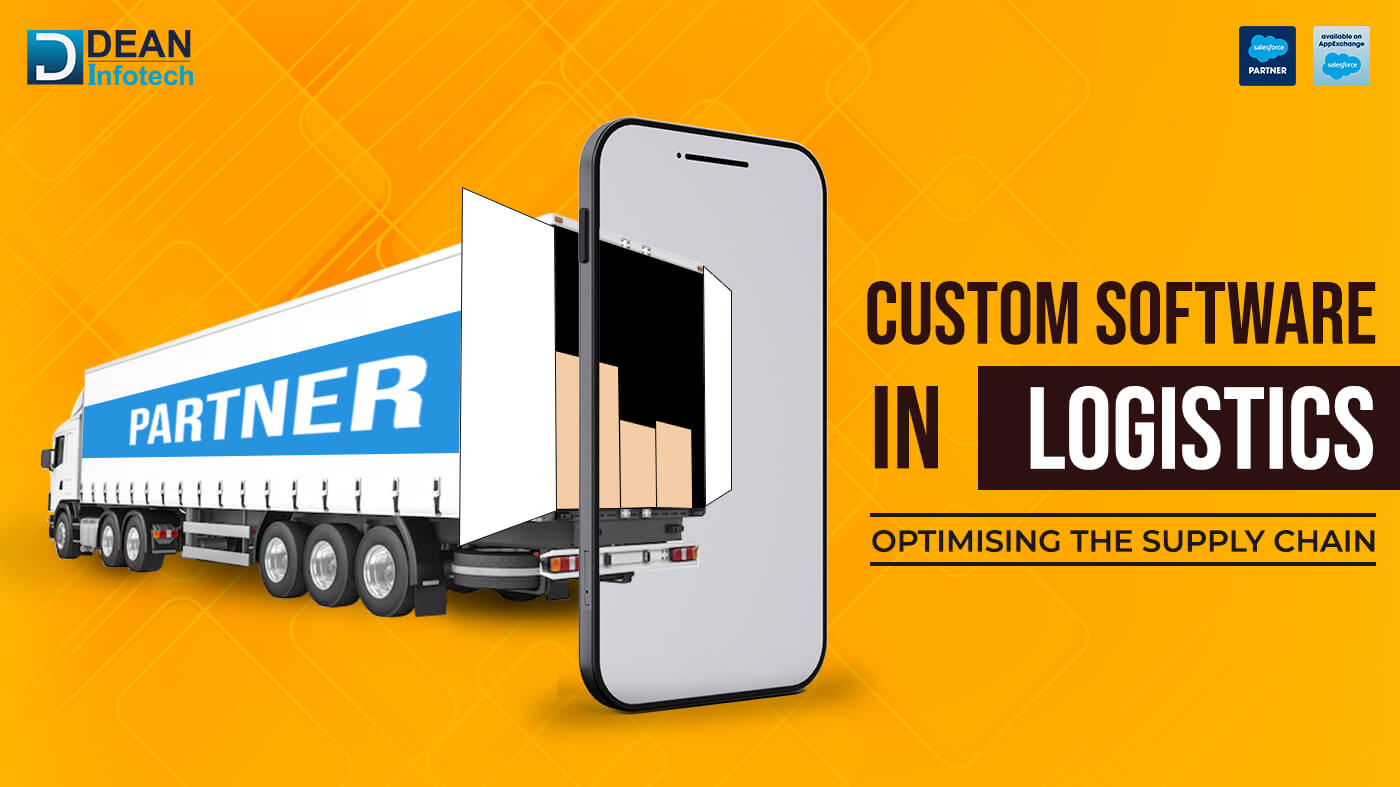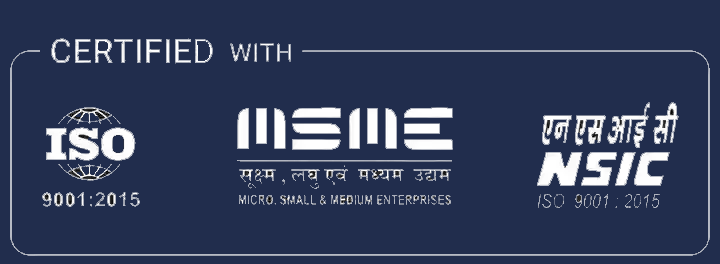Custom Software in Logistics: Optimising the Supply Chain
 Ankit Agarwal Friday, April 26, 2024
Ankit Agarwal Friday, April 26, 2024
Custom logistics and supply chain software refers to a custom enterprise software development solution that addresses your organisation’s unique requirement for logistics and supply chain operations.
Unlike off-the-shelf software, the developers develop these solutions from scratch after understanding your business’s specific needs, processes and challenges. The software solution encompasses numerous functionalities, including supply chain optimisation, order processing and demand forecasting.
Key Areas for Custom Software Solutions
As a logistics and supply chain management company, you must adopt and implement powerful and functional supply chain software to manage the operations, planning, procurement and distribution of products, data information, and finances. If you plan to implement a custom logistic software solution, ensure that it covers the following key areas:
1. Order Management
The order management system handles large volumes of online orders. With the system, you can monitor and track all the orders right from the time of placing an order until it reaches the delivery point.
The system manages all the processes, including order receiving, scheduling, processing, storage, shipping and delivery. Certain features like automatic scheduling, real-time optimisation and tracking, managing order status and multiple payment gateways simplify the order management processes for business.
2. Demand Forecasting
The feature helps your firm plan inventory and supply depending on the increase and decrease in demand. Demand planning tools help analyse a product’s lifecycle based on historical sales data, identify trends, and predict future demand. The features help in avoiding ordering too much or too little inventory.
3. Supply Chain Management
With efficient supply chain management, you can maximize customer value, boost profitability, and achieve sustainable competitive advantage. It helps in managing the transportation of goods from raw materials to finished products, linking the production, shipment and delivery of goods.
The activities involve discovering optimal sourcing locations, determining the optimal quantity and the type of inventory required to meet the demand, and identification of the best delivery locations for the products.
4. Warehouse Management
It helps you and your core team to monitor the physical warehouse in real-time. It uses advanced sensors, Internet of Things (IoT) devices, and smart storage tools to maintain optimal conditions for storage and distribution of inventory with minimal human intervention. It translates to faster shipping, lower cost, optimised storage, tracking and order fulfilment.
Benefits of Custom Logistics Software Solutions
There are numerous benefits of custom logistics software implementation. Some of these include:
1. Improved Efficiency
With custom software solutions, you can streamline your logistics operations quickly and accurately. It helps in faster deliveries and reduces storage and shipping costs. Moreover, the software allows you to automate tasks, including order tracking and calculate transit time with manual input for numerous functions.
2. Boosts Visibility
When a logistics company employs custom software, the firm experiences greater visibility in its supply chain operations by monitoring various data, including order status, delivery timeframe and inventory levels. With enhanced transparency comes better communication among your stakeholders, resulting in improved customer service delivery and higher satisfaction among clients.
3. Increased Accuracy
Custom software helps your logistics firm streamline your logistics process. It further reduces errors and promotes accurate and on time delivery, increasing customer satisfaction while reducing associated costs associated with incorrect and late deliveries. Furthermore, customised solutions easily integrate with the existing systems, ensuring updated and accurate data throughout.
4. Scalability and Flexibility
Custom software solutions fulfil the unique needs of your business. With the growth and evolution of your firm, you can easily scale and modify these software solutions to adapt to the changing requirements. The agility ensures that the software remains aligned with the organisation’s goals, supporting growth trajectory with any disruptions and expensive migrations.
The Custom Logistics Software Development Process
The development of custom logistics software development involves a structured process, ensuring successful delivery. If you plan to implement your custom logistics software, you must follow the following stages :
1. Validating Idea
It is the first phase, where an organisation collaborates with a software development team to validate the feasibility and viability of the custom software project. The team assesses the organisation’s requirements, analyses the existing process, identifies the potential areas for improvement and offers you an estimation of your custom logistics software cost. The stage marks the foundation for the subsequent development process.
2. Innovation and Development
After the approval of the project, the software team begins with the innovation and development phase. They will work closely with you and your stakeholders to build your custom software. The stage involves coding, integrating the systems, and customising the software to your business’s requirements.
3. Testing
Before deploying the software, the team conducts rigorous testing to ensure its reliability, security and performance. It includes functional testing, user acceptance testing, load testing, and vulnerability testing. They will identify any potential issues and bugs, resolve them by thoroughly testing the software, ensuring a smooth and efficient deployment, and maximise return on investment.
4. Project Governance
It is the last phase of your custom software development, where the team monitors and manages the deployment process. The phase includes setting up user training programs, establishing support mechanisms, and creating a feedback loop for continuous improvement. The team ensures effective implementation and adoption of custom logistics and supply chain software. It further addresses any issues that might arise.
Conclusion
Custom logistics and supply chain software solutions have the potential to revolutionise operations, improve efficiency and reduce costs for your business. With the implementation of custom software, you can streamline processes, enhance visibility, and make data-driven decisions. If your organisation is looking for such a solution, it is the right time to explore the vast world of custom solutions.








Comment
Roman Gardner
Friday, December 26th, 2025, 1:39:48 PM
"Really enjoyed how this article highlights the role of bespoke transportation management software in optimizing logistics and supply chain operations. The focus on solving real‑world challenges—such as reducing delays, improving visibility, and enabling seamless coordination between multiple stakeholders—makes the value of custom solutions very clear. I also appreciated the practical examples of how tailored software can drive efficiency across transportation, warehousing, and last‑mile delivery. I recently read a similar and insightful blog on https://mobisoftinfotech.com/solutions/transportation-management-system , which offered further perspectives on how TMS platforms can be customized to address unique business requirements. Thanks for sharing such valuable insights!"